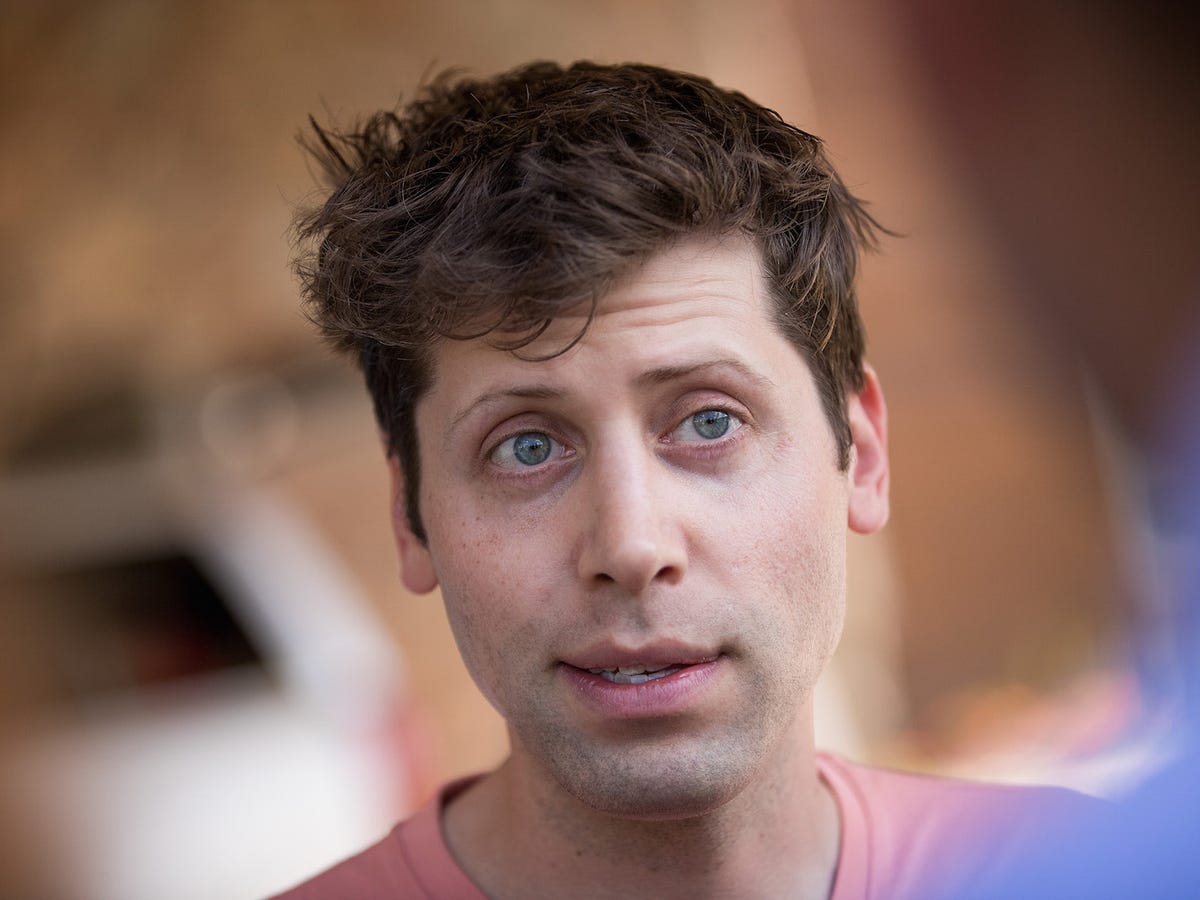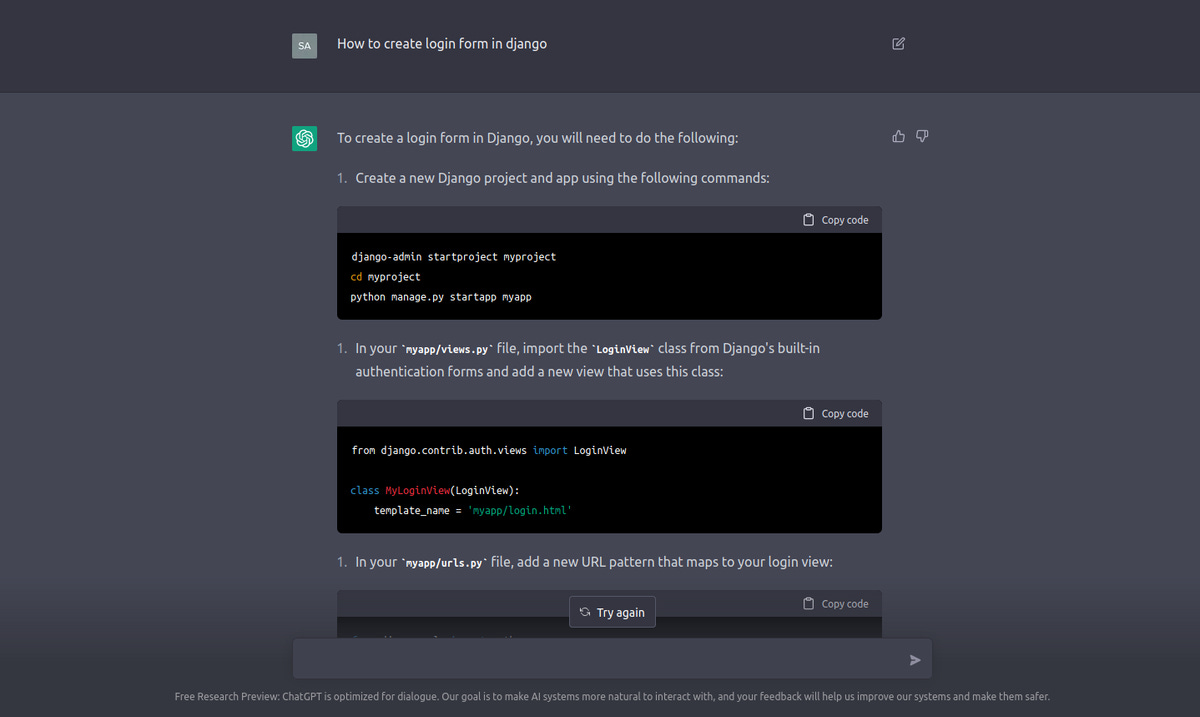OpenAI CEO, Sam Altman, has stated that the era of giant AI models is over and that future strides in artificial intelligence will require new ideas. Altman’s declaration suggests a twist in the race to develop and deploy new AI algorithms. OpenAI’s chatbot, ChatGPT, triggered a surge of new interest and investment in artificial intelligence, with many people rushing to experiment with using the new breed of chatbot to help with work or personal tasks. Meanwhile, numerous startups, including AI21, Cohere, and Character.AI, are throwing enormous resources into building ever larger algorithms in an effort to catch up with OpenAI’s technology.
Altman’s statement suggests that GPT-4 could be the last major advance to emerge from OpenAI’s strategy of making the models bigger and feeding them more data. He did not say what kind of research strategies or techniques might take its place. In the paper describing GPT-4, OpenAI says its estimates suggest diminishing returns on scaling up model size. Altman said there are also physical limits to how many data centers the company can build and how quickly it can build them.
Nick Frosst, a cofounder at Cohere who previously worked on AI at Google, says Altman’s feeling that going bigger will not work indefinitely rings true. He, too, believes that progress on transformers, the type of machine learning model at the heart of GPT-4 and its rivals, lies beyond scaling. “There are lots of ways of making transformers way, way better and more useful, and lots of them don’t involve adding parameters to the model,” he says. Frosst says that new AI model designs, or architectures, and further tuning based on human feedback are promising directions that many researchers are already exploring.
Each version of OpenAI’s influential family of language algorithms consists of an artificial neural network, software loosely inspired by the way neurons work together, which is trained to predict the words that should follow a given string of text. The first of these language models, GPT-2, was announced in 2019, and the company made GPT-2’s successor, GPT-3, still bigger, with a whopping 175 billion parameters.
The remarkable capabilities of GPT-4 have stunned some experts and sparked debate over the potential for AI to transform the economy but also spread disinformation and eliminate jobs. Some AI experts, tech entrepreneurs including Elon Musk, and scientists recently wrote an open letter calling for a six-month pause on the development of anything more powerful than GPT-4.
Altman confirmed that his company is not currently developing GPT-5. “An earlier version of the letter claimed OpenAI is training GPT-5 right now,” he said. “We are not, and won’t for some time.”

Despite the potential for AI to transform the economy, some experts have warned that it could also be used to spread disinformation and eliminate jobs. This has led to debates on whether AI and cryptocurrency are Ponzi schemes. A Ponzi scheme is a fraudulent investment scheme that promises high returns with little risk to investors, but in reality, it uses money from new investors to pay off existing ones. Similarly, some critics argue that cryptocurrencies, such as Bitcoin, are Ponzi schemes as they rely on new investors to keep the value of the currency high.
While it is true that some cryptocurrencies have been involved in fraudulent schemes, it is not accurate to say that all cryptocurrencies are Ponzi schemes. Cryptocurrencies, like any other investment, carry risks and can be subject to market manipulation. However, they also have the potential to transform the way we think about money and financial systems.
Despite the hype surrounding GPT-4, Altman’s statement suggests that making models bigger will no longer be the main path to progress in AI. This statement raises questions about the future of AI research and whether investing in larger models will continue to be the most effective approach.

People are learning that much is possible with AI such as chatgpt
Altman’s statement is not surprising to many researchers in the field. Some believe that while scaling up models has been a successful approach, it is not sustainable in the long term. Nick Frosst, co-founder at Cohere and former AI researcher at Google, believes that progress on transformers – the type of machine learning model at the heart of GPT-4 and its rivals – lies beyond scaling. Frosst suggests that new AI model designs, architectures, and further tuning based on human feedback are promising directions that many researchers are already exploring.
While GPT-4’s capabilities have sparked debate over the potential for AI to transform the economy and spread disinformation, Altman’s statement also raises questions about the ethical implications of AI research. Some experts, tech entrepreneurs including Elon Musk, and scientists recently wrote an open letter calling for a six-month pause on the development of anything more powerful than GPT-4. They expressed concern that the technology could be used to create increasingly convincing deepfake videos or impersonate people online, among other potential dangers.
Altman confirmed that OpenAI is not currently developing GPT-5, and that it won’t for some time. This decision suggests that OpenAI is taking a cautious approach to AI research, recognizing the need to balance technological advances with potential risks. As the field of AI continues to evolve, it will be important for researchers, policymakers, and other stakeholders to work together to ensure that AI is developed in a responsible and ethical manner.
The debate over the future of AI research highlights some of the challenges that arise when new technologies emerge. While AI has the potential to transform many aspects of society, it also raises important ethical and social questions that need to be addressed. As the field of AI continues to evolve, it will be important for researchers and policymakers to consider the potential risks and benefits of new technologies and work together to create a future that is both innovative and ethical.

Thanks for reading Solanews , remember to follow our social media channels for more

